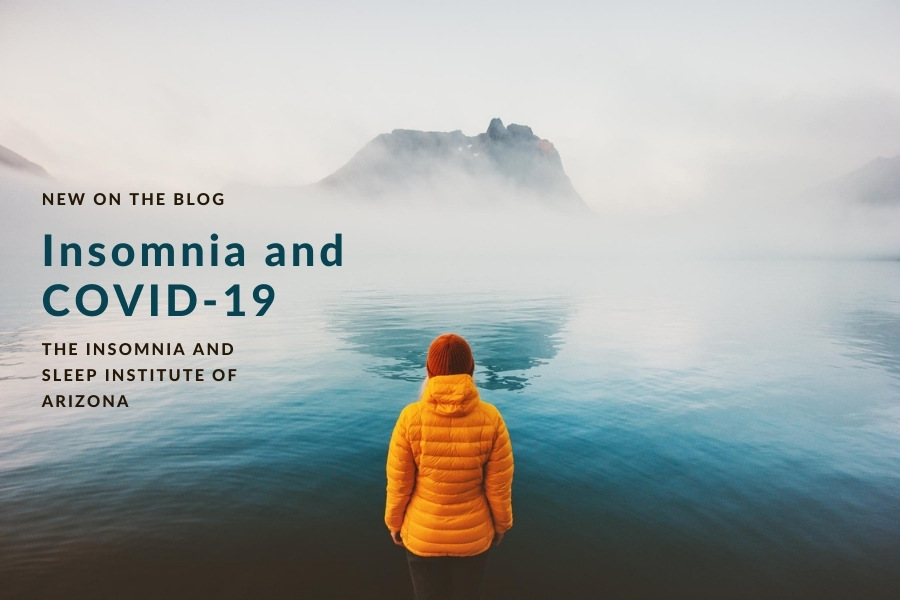According to a recent study, COVID-19 is associated with an increase in dementia, brain fog, psychosis—and insomnia in some cases. One of the most common sleep conditions treated at The Insomnia and Sleep Institute of Arizona is insomnia, and while the standard treatment often begins with cognitive behavioral therapy for insomnia (CBT-I), it is essential to consider co-morbidities and other factors when treating any sleep condition. A number of studies have been published since the onset of COVID and while we are still in the relatively early stages of analyzing the effects of the pandemic, one thing is certain: it is affecting our sleep in a myriad of ways.
The study, which was published in The Lancet Psychiatry, also found that adults with COVID had higher instances of depression and anxiety, but those typically subsided in 60 days. However, those with COVID face a lingering higher risk of developing both psychiatric and neurological issues for up to two years post-infection. This, of course, might be much longer since we are still in the early phases of examining the long-term effects of the pandemic.
What the Research Says
The National Institute for Health and Care Research at the Oxford Health Biomedical Research Center and the University of Oxford conducted the study, which included looking at 14 psychiatric and neurological diagnoses from TriNetX health records. Most of these 1.5 million records were derived from the United States. Each of these 1.5 million people were diagnosed with COVID between January 2020 and April 2022, and 1.28 million of them were matched to a patient with “another respiratory infection” (non-COVID).
The results showed that those under 64 years old had the highest instance of “brain fog” at 640 cases for every 10,000 people. For comparison, there were 550 cases of brain fog per 10,000 people in the non-COVID/other respiratory infection group. Those over the age of 65 who had COVID also reported higher instances of brain fog compared to the control group at 1,540 cases per 10,000 as well as dementia (450 cases) and psychotic disorders (85 cases). Unlike anxiety and depression associated with COVID, which was shown to quickly dissipate, all of these conditions tended to increase throughout the months following the initial infection.
Researchers also looked at the post-COVID trajectories for children. Six months after initial infection, children were also no longer at an increased risk of anxiety and other mood disorders, but were instead at an increased risk of a myriad of other conditions including insomnia and cognitive deficit (brain fog). Researchers note that the findings are “relevant for policymakers involved in anticipating and addressing the health burden of the pandemic.”
Insomnia and Children
Children were markedly more at risk for insomnia in the months following a COVID infection compared to adults. Typically, many people think of insomnia as affecting strictly adults, but that has never been the case—and it is why we treat patients as young as two years old. Generally, adults to tend to have chronic insomnia more so than children, but anyone can struggle with this common sleep disorders. The standard management for insomnia is sleep hygiene changes, such as avoiding screens for at least two hours before bedtime, ensuring sleeping areas are cool and dark, and self-care such as a warm bath before bed.
Sleep hygiene varies person to person and there are different strategies for children vs. adults. Cognitive behavioral therapy for insomnia is often the first step in a conservative approach for insomnia, particularly in children, and it is available at our center. In some cases, medications may be prescribed for insomnia, but this should be used sparingly for chronic cases and for children. That is why our center has a clinical psychologist focused on CBT-I on staff. To find out more about insomnia treatments for all ages, regardless of past COVID infection, schedule a consultation today. Contact The Insomnia and Sleep Institute by calling the office or completing the online contact form now.





